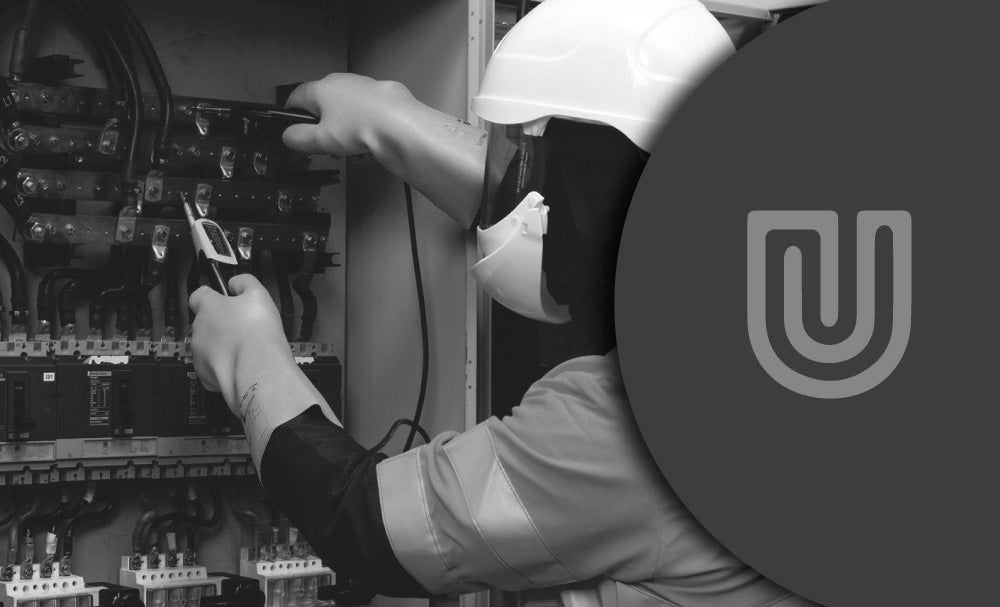What EU standard EN60903 requires in electrical insulating gloves?
Many sectors involve activities that require people to work with, on or in close proximity to electrical equipment, cables or circuits. These can pose a risk of electrical burns, electric shock or even electrocution. According to the Health and Safety Executive, on average, five workers lose their lives as a result of safety-related electrical incidents every year. A further 1,375 sustain serious injuries. So, it’s important that workers are protected from electrical hazards to the greatest extent possible.
The UK’s Electricity at Work Regulations 1989 are clear about the need to cut off the power supply to any electrically powered equipment or wiring before working on or near it. In addition, they state that other precautions, including the wearing of suitable protective equipment, should be taken to prevent injury.
Insulating gloves (see Electrical Gloves) provide personal protection for those at risk of exposure to electrical hazards. Electrically insulating material, such as rubber, prevents dangerous levels of electric current from passing into the glove-wearer’s hand and through their body. Specialist electrical insulating gloves, such as the new Unigloves Sibille Safe range, can protect against voltages up to 36,000 V, depending on the class of glove (see table below).
What conformity with EN60903 means
The Sibille Safe Electrical Insulating Gloves and Arc Flash Gloves conform to both the international IEC60903:2014 standard and the European Union EN60903:2003 standard. Gloves of insulating material used for working with, on or in close proximity to electricity or electrical equipment are tested to these standards.
The EN60903 standard covers the following requirements: dielectric (insulating) properties; physical characteristics (including composition, shape, dimensions); mechanical features (including tensile strength, puncture resistance, tension set); and ageing and thermal properties. Optional tests in relation to specific properties, such as resistance to acids, oils and ozone, may also be carried out, where necessary.
Only gloves that are certified according to EN60903 should be specified for activities where there is a risk of electric shock.
To be sure that a product complies with the rigorous requirements of EN60903, users should check for CE marking. This is evidence of the manufacturer’s declaration that its gloves meet EU standards governing product safety. CE marked products are examined by a notified body appointed by an EU Member State. Once the necessary conformity assessment procedures have been completed, the manufacturer affixes the CE marking to the gloves. It is also obliged to compile and make available technical documentation relating to its product.
EN60903 compliant gloves are grouped into six classes, according to the voltage up to which they provide protection – see the table below:
Every single EN60903 compliant electrical insulating glove sold by Unigloves has been live tested to ensure it provides protection up to the voltage claimed.
EN60903 and protection from mechanical hazards
EN60903 places great importance on the mechanical integrity of insulating gloves, as a puncture, tear or other physical damage can seriously compromise the product’s effectiveness. In the case of standard electrical insulating gloves, leather over gloves are recommended to be worn where added protection against mechanical hazards is required.
The leather over gloves in our Sibille Safe range provide added scratch and puncture resistance for our Sibille GLB gloves. Our Sibille Electrical Insulating Arc Flash Gloves feature enhanced mechanical protection and do not require an over glove to be worn.
Insulating rubber gloves should be regularly examined by the user to ensure continued product safety. This can be as straightforward as stretching the gloves to check for tears and cuts. However, performing an air test to confirm there are no punctures is also recommended.
Our Sibille Portable Glove Inflator makes this an effortless task. It is also highly advisable to ensure the glove is clean, as the presence of dirt can easily hide defects, which may compromise the glove’s integrity. In addition, to maintain their effectiveness, electrical insulating gloves require careful storage – away from strong light, moisture and chemical interference. The Sibille ancillary range features cleaning fluid, protective bags and storage cases, to help you ensure the performance, cleanliness and longevity of your gloves.
Check out the new EN60903 compliant Unigloves Sibille Safe range for all tasks involving electrical hazards or get in touch with our team to find your nearest distributor. Unigloves Customer Service can be reached by email enquiries@unigloves.co.uk or by calling +44(0)800 049 6602.
Related press coverage:
Professional Electrician & Installer


